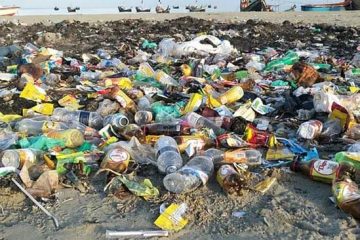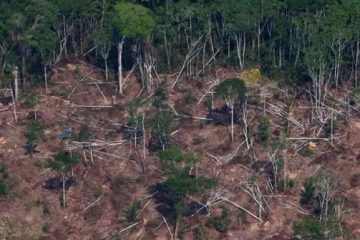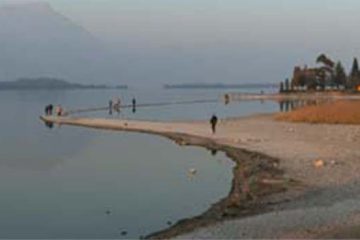Global Warming
Reduce greenhouse gas emissions
Farhad Tuhin.
 Greenhouse gases naturally blanket the Earth and keep it about 33 degrees Celsius warmer than it would be without these gases in the atmosphere. Over the past century, the Earth’s temperature has increased by about 0.5 degrees Celsius and scientists believe this is because of an increase in concentration of the main greenhouse gases namely carbon dioxide (76%), methane (13%), nitrous oxide (6%), and fluorocarbons (5%). People are now calling this climate change over the past century the beginning of ‘Global Warming’. Fears are that if people keep on producing such gases at increasing rates, the results will be just negative in nature, such as more severe floods and droughts, increasing prevalence of insects, sea level rising, and Earth’s precipitation may be redistributed. These changes in the environment will most likely cause negative effects on society, such as lower health status and decreasing economic development.
Greenhouse gases naturally blanket the Earth and keep it about 33 degrees Celsius warmer than it would be without these gases in the atmosphere. Over the past century, the Earth’s temperature has increased by about 0.5 degrees Celsius and scientists believe this is because of an increase in concentration of the main greenhouse gases namely carbon dioxide (76%), methane (13%), nitrous oxide (6%), and fluorocarbons (5%). People are now calling this climate change over the past century the beginning of ‘Global Warming’. Fears are that if people keep on producing such gases at increasing rates, the results will be just negative in nature, such as more severe floods and droughts, increasing prevalence of insects, sea level rising, and Earth’s precipitation may be redistributed. These changes in the environment will most likely cause negative effects on society, such as lower health status and decreasing economic development.
The “greenhouse effect” is the heating of Earth due to the presence of greenhouse gases. Shorter-wavelength solar radiation from the sun passes through Earth’s atmosphere, then is absorbed by the Earth surface, causing it to warm. Part of the absorbed energy is then reradiated back to the atmosphere as long wave infrared radiation. Little of this long wave radiation escapes back into space; the radiation cannot pass through the greenhouse gases in the atmosphere. The greenhouse gases selectively transmit the infrared waves, trapping some and allowing some to pass through into space. The greenhouse gases then remit the absorbed waves and remits the waves downward, causing the lower atmosphere to warm.
Carbon Dioxide (CO2) is a colorless, odorless non-flammable gas and is the most prominent Greenhouse gas in Earth’s atmosphere. CO2 producing culprits include power plants 33%, factories and home heating systems 33%, cars and trucks 22% and major transportation 12%. It is recycled through the atmosphere by the process of photosynthesis, which makes human life possible. Carbon Dioxide is emitted into the air as humans exhale, burn fossil fuels for energy, and deforest the planet. The U.S. continues to emit more than any other country in the world, accounting for 22.2% of all emissions. Other important CO2 emitters include China (18.4%), European Union (14.7%), Russia (5.6%), India (4.9%), Japan (4.6%), and Canada (2.3%).
We use coal, oil and natural gas to generate electricity, heat our homes, power our factories and run our cars. These fossil fuels contain carbon, and when they are burned, they combine with oxygen, forming carbon dioxide. Deforestation is another main producer of carbon dioxide. The World Energy Council reported that global carbon dioxide emissions from burning fossil fuels were rising. The increase from developing countries was three times of that from developed countries. Middle East carbon dioxide emissions from burning of fossil fuels increased by 35%, Africa 12%, and Eastern Europe 75% from 1990 on ward.
Impacts
Naturally, if there are more greenhouse gases in the atmosphere, the effect will be more significant and will raise the temperature of Earth more. The planet is heating up and the evidence suggests that human activities are having a significant impact. The Intergovernmental Panel on Climate Change (IPCC) has concluded by consensus that “The balance of evidence suggests a discernible human influence on global climate.” They project that global warming will have severe impacts on human health, natural ecosystems, agriculture, and coastal communities. This evidence supports the common belief that global warming is occurring due to the increased concentration of greenhouse gases in the atmosphere — carbon dioxide, nitrous oxide, methane, and HFC.
There are many environmental problems coming from the increased concentration of greenhouse gases in Earth’s atmosphere. As Jeff Rubin of ABC NEWS reported, “Several signs indicate that we’ve begun changing Earth’s climate: increased water vapour in the atmosphere, glaciers and polar ice caps appear to be melting, floods and droughts are becoming more severe, and sea levels have risen, on average, between 4 and 10 inches since 1990”. Experts concur, “We are already beginning to see this (global warming) taking place — a lot more flooding, a lot more droughts”. Jerry Malham added, “By 2100, we might get a 2-foot sea level rise, but levels might continue to rise. This rise in sea level can increase the salinity of freshwater throughout the world, and cause coastal lands to be washed under the ocean. Warmer water and increased humidity may encourage tropical cyclones, and changing wave patterns could produce more tidal waves and strong beach erosion on the coasts.
Increasing amounts of greenhouse gases in the atmosphere and global warming could also lead to more health concerns. A statement released from IPCC said, “Climate change is likely to have wide-ranging and mostly adverse impacts on human health, with significant loss of life.” As temperatures increase towards the poles, similar to farmland, insects and other pests migrate towards Earth’s poles. Some insects carry diseases such as malaria and dengue fever. Thus, an increase in these particular insects and pests closer to the poles would result in an increase in these diseases. This could lead to 50 to 80 million additional cases of Malaria annually, a 10-15% increase. “Malaria and dengue fever are already beginning to spread pole wards”, said Jane Lubchenco (past president of American Association for the Advancement of Science).
The most obvious health effect is directly from the heat itself. With an increase in heat waves, there will be more people who will suffer from heatstroke, heart attacks and other ailments aggravated by the heat. Warming of the oceans could also promote toxic algae which can lead to cholera.
Global warming causes the oceans to warm and expand, inducing a rise in sea level. Eventually, the rising waters could take away land inhabited by people, forcing them to move. Dr. Robert Buddemieir of the Kansas Geological Survey (USA) said, “Bangladesh is massively populated, achingly poor, and something like a sixth of the country is going to go away”. Bangladesh cannot afford to build barriers to hold back the sea, so people would have to move inland, increasing the population density and leading to an increase in hunger and disease. Recently IPCC states that the atmospheric temperature will be increased by up to 2 degree Celsius in Bangladesh. he Maldive Islands in the Indian Ocean have the same problem. They are a nation of 1190 islands with an average height of about 1.5 meters above sea level. If the sea level rises, more than 200,000 people will have to abandon their homes.
However, the world’s leading scientists project that during our children’s lifetimes global warming will raise the average temperature of the planet by 2 to 6 degrees Fahrenheit (1-3.5 degree Celsius). In contrast the Earth is only 5 to 9 degrees Fahrenheit (3-6 degrees Celsius) warmer today than it was 10,000 years ago during the last ice age. Man-made global warming is occurring much faster now than at any other time in at least the last 10,000 years. The environment day’s slogan this year was ‘Kick the Habit! Towards a Low Carbon Economy’. Life and environment are intimately interrelated. This environment is the safeguard for all animals and plants. Therefore we should come together to save our environment by reducing the harmful green house gases.
The writer is a professional geologist.
Courtesy: The Daily Star (thedailystar.net)



